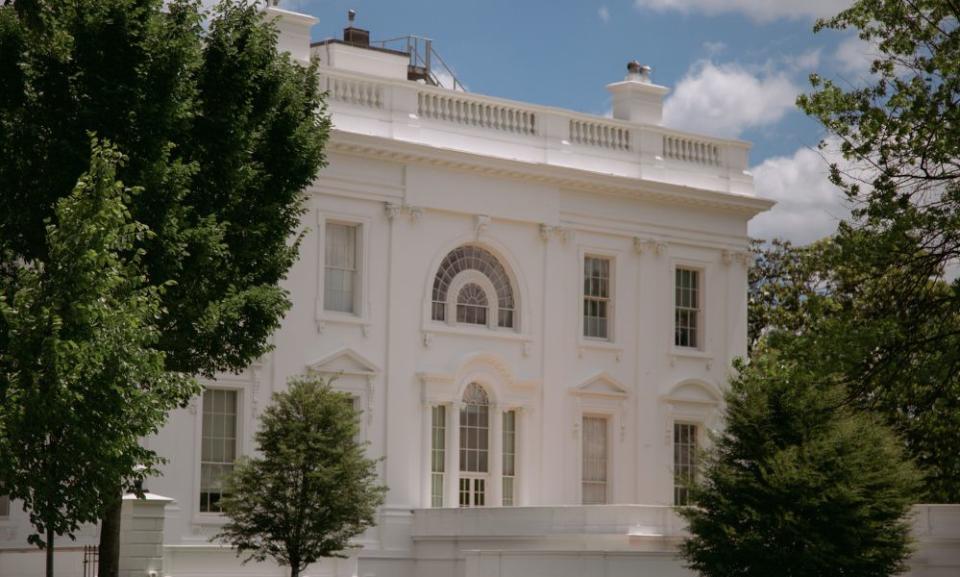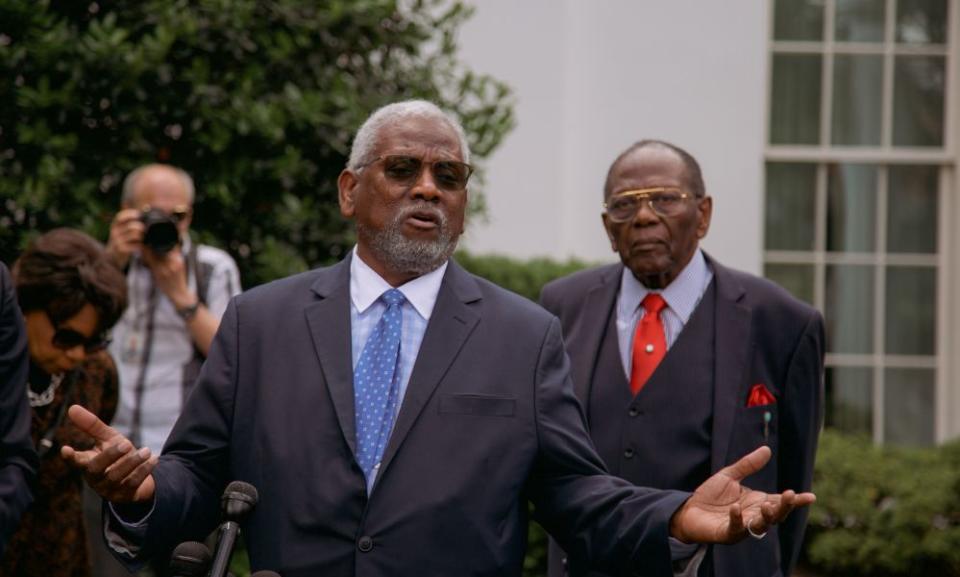‘The Fight Continues’: As Segregation Grows, White House Honors Brown v. Board

- Oops!Something went wrong.Please try again later.
In a bittersweet ceremony steps from the White House, families who were part of the historic Brown v. Board Supreme Court decision called out persistent and pervasive racial inequities in the nation’s schools while being honored for their sacrifices in challenging segregation 70 years ago.
Family members and NAACP President Derrick Johnson spoke of the violent threats endured for years following the decision, which outlawed separating children into schools by their race.
President Joe Biden met with the delegation of two original plaintiffs, about 20 descendants and NAACP leadership “critical in fighting for these and other hard-won freedoms for Black Americans,” according to a White House official.
Get stories like these delivered straight to your inbox. Sign up for The 74 Newsletter
Several family members reiterated the struggle to make good on Brown’s promise of quality education for all is far from over.
“We have a lot of work to do,” said Cheryl Brown Henderson, youngest daughter of namesake plaintiff Oliver Brown, just after leaving the Oval Office. “… We’re still fighting the battle over whose children we invest in.”
In the private meeting, family members said they urged the President to continue that fight and support HBCUs. President Biden thanked them for taking on the risks required to push back on Jim Crow and segregation, including risking “your life, your livelihood, your home,” said Brown Henderson.

At least one litigating family’s home was burned to the ground in South Carolina. Many others lost jobs, compounding the challenges Black families faced in trying to build economic wealth less than a century after the fall of slavery.
One descendant urged the President to consider a national holiday commemorating the landmark court decision so that its significance and history would not be lost.
“We have yet to fulfill the promise of Brown,” said NAACP President Derrick Johnson, adding that teaching “adequate” history is being threatened in multiple states. Last month, the organization filed a lawsuit against the state of Arkansas for its “anti-indoctrination” law and alleged discrimination against Advanced Placement African American Studies courses.
Report: State by State, How Segregation Legally Continues 7 Decades Post Brown
“So the fight continues,” Johnson said. “It is a political fight. It is a legal fight. It is a moral fight, to ensure that we have a future that’s reflective of the demographics of this country today and not the demographics of 1950.”
Earlier this week, scholars at Stanford University and University of Southern California unveiled troubling research that school segregation steadily increased in the last three decades. Experts say there’s an urgent need to reform how students are sorted into schools – four states require, and nearly all allow, districts to enforce attendance zones, which often mirror racist housing or sundown town boundaries from nearly a century ago.
Schools are More Segregated than 30 Years Ago. But How Much?
Family members called out the press’s failure to accurately document challenges to Brown’s implementation and racial educational inequities being played out in schools today. They also voiced criticism for the administration’s military and war spending in comparison to education priorities. This week President Biden authorized an additional $1 billion arms sale for Israel and late last month signed a $95 billion war measure for aid to Ukraine, Taiwan and other countries.
“The truth about education in America? Are the kids from the Indian reservations … in West Virginia, or my mother’s hometown in South Carolina [getting quality education]? I say no. Tell me I’m wrong,” said Nathaniel Briggs, son of the namesake plaintiff in Briggs v. Elliot. “We’ll spend millions of dollars to buy an airplane and a bomb, but not on education.”

Thursday’s event was the first of several NAACP and White House engagements commemorating the anniversary. Tomorrow, seven decades to the day since the court issued the Brown decision, the President will share remarks at the African American Smithsonian.

